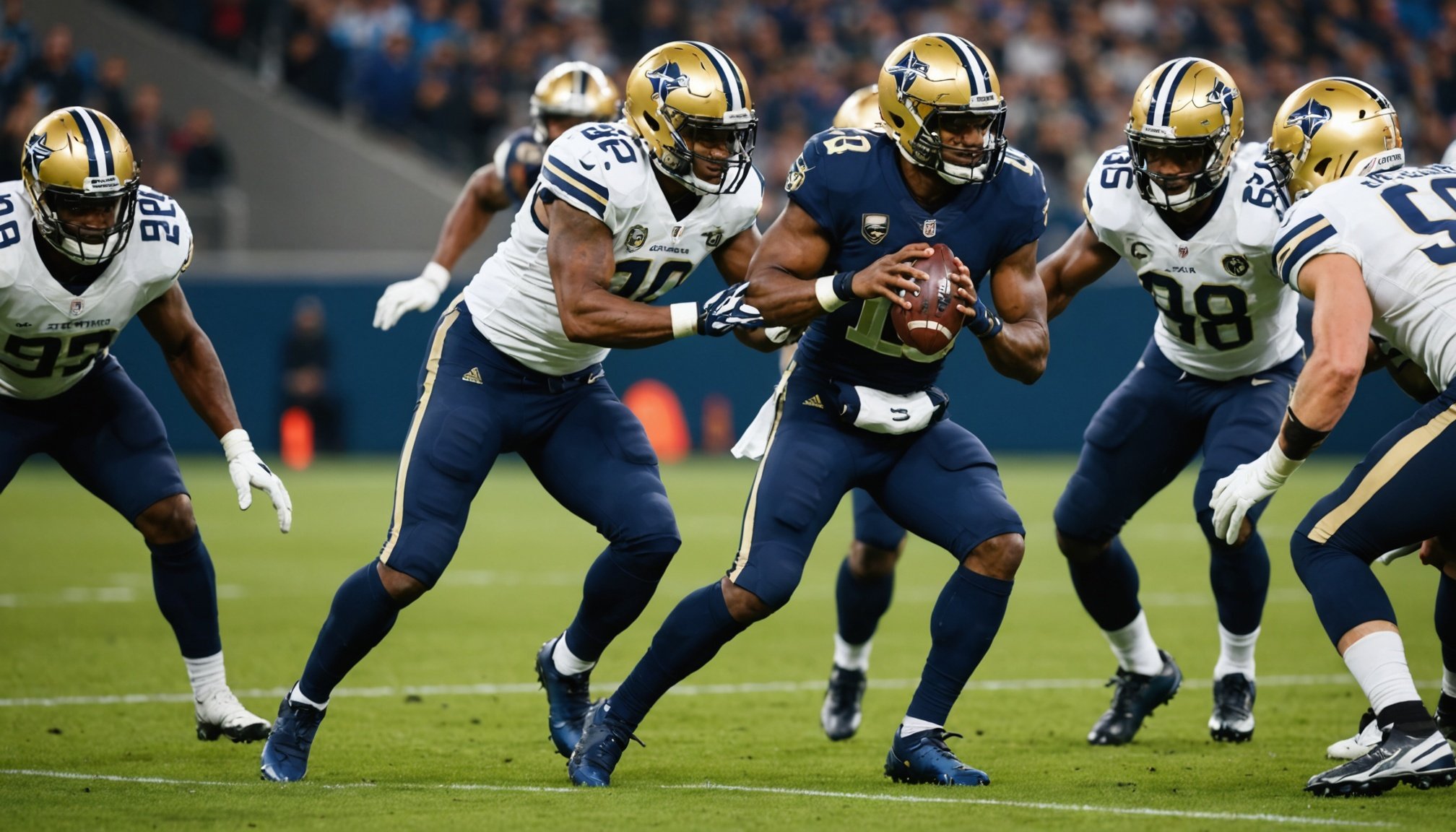Importance of Interdisciplinary Teams in Recovery
In the world of elite athletes, interdisciplinary teams play a pivotal role in crafting effective recovery strategies. By merging expertise from sports medicine with diverse disciplines, these teams enhance recovery outcomes through a collaborative approach impossible for singular methods.
Interdisciplinary collaboration in sports recovery ensures that athletes receive comprehensive care. This approach integrates perspectives from various specialists, leading to evidence-based benefits. For instance, physiotherapists concentrate on physical rehabilitation, while nutritionists tailor diets to bolster physical restoration. Meanwhile, sports psychologists enhance athletes’ mental resilience, crucial for holistic recovery.
In the same genre : How Silicon Valley’s Cutting-Edge Tech is Transforming Data-Driven Coaching in Basketball
Research indicates that teamwork significantly boosts recovery success. By sharing insights and expertise, interdisciplinary teams can identify and address individual athlete needs more effectively than isolated specialists. This synergy fosters a supportive environment that targets multiple aspects of recovery, speeding up rehabilitation and minimizing the risk of recurrent injuries.
Successful approaches illustrate the power of interdisciplinary teams. Consider a scenario where an elite athlete benefits from combined physiotherapy, nutrition advice, and psychological counseling. Such collaboration ensures well-rounded recovery, supporting the athlete’s physical, mental, and nutritional well-being. As a result, the athlete is more prepared to perform at peak levels, armed with a robust support system.
Additional reading : Harnessing tranquility: how structured mindfulness transforms stress relief for pro golfers
Measurable Outcomes from Interdisciplinary Collaboration
Interdisciplinary teams generate significant success in athlete recovery through measurable outcomes. By setting clear performance metrics and recovery benchmarks, these teams can quantify the impact of their collaborative efforts. But what specific outcomes should teams focus on?
Establishing Recovery Benchmarks
Recovery benchmarks are crucial to evaluating progress. They include both physiological and psychological indicators such as mobility, mental stress levels, and nutritional balance. For instance, a benchmark could be the reduction in an athlete’s recovery timeline.
Analyzing Performance Metrics
Performance metrics offer a quantifiable way to assess an athlete’s improvement post-recovery. Metrics can include speed, endurance, and strength measurements. For example, an increase in endurance tests post-recovery directly reflects effective interdisciplinary planning.
Case Studies of Measurable Success
Numerous case studies highlight the efficacy of well-coordinated interdisciplinary teams. One example features a sprinter who underwent concerted rehab involving physiotherapy, psychological support, and nutritional adjustments. The result? Enhanced sprint times and reduced injury risk. These measurable improvements underscore the value of teamwork, pointing to a holistic recovery as an achievable goal with the right collaborative framework. This evidence bolsters confidence in such multifaceted approaches, instilling trust that interdisciplinary strategies can indeed yield effective, measurable outcomes.
Roles of Key Specialists in Athlete Recovery
Interdisciplinary teams rely on the specialised expertise of physiotherapists, nutritionists, psychologists, and sports scientists to facilitate athlete recovery. Each plays a crucial role in the collaborative effort to enhance recovery outcomes.
Physiotherapists in Recovery
Physiotherapists focus on physical rehabilitation. They devise exercises to restore mobility, strength, and flexibility. By addressing specific injuries, they lay the foundation for an athlete’s physical recovery.
Nutritionists’ Impact on Athlete Performance
Nutritionists contribute by creating tailored diet plans that support recovery. Their focus on nutrient-rich foods accelerates healing, replenishes energy, and optimises performance.
Psychologists and Mental Resilience
Psychologists play a pivotal role in building an athlete’s mental resilience. They address stress, enhance motivation, and promote mental health, which are fundamental to complete recovery.
How Specialists Synergize
Synergy among these specialists is key. Consider a scenario where an athlete receives concurrent physical therapy, nutritional adjustments, and psychological support. Each specialist’s input is interdependent, working towards seamless recovery. Such a multifaceted approach ensures comprehensive athlete wellness, integrating physical, nutritional, and mental facets for optimal recovery success. This collaborative synergy is vital for future high-performance outcomes.
Challenges and Solutions in Interdisciplinary Work
Interdisciplinary teams in sports recovery face several challenges that require strategic solutions for effective collaboration. Common obstacles include communication barriers and the integration of diverse expert insights. Without streamlined communication, specialists might duplicate efforts or overlook critical recovery strategies, compromising the holistic well-being of elite athletes. Additionally, varying terminologies and methodologies between sports medicine and other fields can create misunderstandings.
However, addressing these challenges is possible with dedicated solutions. Implementing structured communication channels, such as regular interdisciplinary meetings and shared digital platforms, enhances information flow among team members. These platforms allow for uploading recovery metrics, sharing insights, and reviewing progress collectively.
Effective communication strategies, like adopting a common language or glossary among team members, ensure clarity. Regular training sessions can also cultivate a culture of open dialogue and mutual respect for each discipline’s expertise.
Collaborative solutions often involve establishing clearly defined roles while remaining adaptable to only athlete needs. Case studies continually highlight the success of interdisciplinary teams that circumvent these challenges through proactive planning and role delineation. This approach maximizes each specialist’s input, leading to tailored recovery strategies that elevate athlete performance and well-being.
Holistic Approaches to Recovery
Achieving holistic recovery in elite sports is pivotal for sustained athlete well-being. This multifaceted approach goes beyond mere physical recovery, encompassing psychological and nutritional elements to optimize overall health and performance. By addressing the interrelated aspects of health, athletes can recover more robustly and maintain peak performance levels.
Integrated Health Strategies
Integrated health strategies form the cornerstone of holistic recovery. These strategies bring together various specialists to create a seamless recovery plan. This could mean synchronizing a physiotherapy routine with tailored nutrition programs and mental conditioning exercises to form a cohesive recovery path. Such comprehensive planning ensures that all recovery elements are systematically addressed, facilitating seamless transitions between different recovery phases.
The benefits of holistic recovery are compelling. Athletes experience fewer setbacks, quicker rehabilitation timelines, and improved mental fortitude. This approach encourages athletes to engage actively in their recovery, leveraging all available resources.
Success stories abound; for instance, some athletes see notable improvements in recovery speed and quality when embracing these integrated strategies. By promoting a balance of physical, psychological, and nutritional health, holistic recovery leads to sustained athlete well-being and optimal performance outcomes.

